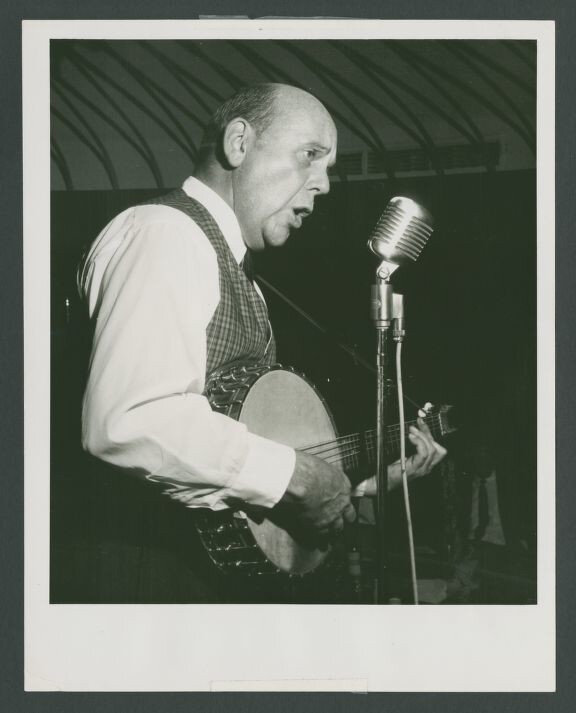Dear Jazz Fans,
I am preparing a biography on Clancy Hayes and would welcome any memories or recollections you may have. Last year I completed Clancy’s vocal discography to make sure that none of his recordings—commercial and non-commercial—were lost.
Having achieved that I am now keen to write a biography on Clancy’s colorful life as an entertainer from age nine, through the radio years, the Great jazz Revival of the 1940s, his long association with Bob Scobey and beyond. There is a lot to tell and any first hand memories of Clancy would be an invaluable part of the story.
If you have any memories to share please or photographs, please email me at chris_reid53@hotmail.com.
Best,
Chris Reid,
London, UK.
An excerpt from my Clancy Hayes biography in progress:
Clancy Hayes: Saturday’s Child by Chris Reid
Clarence Leonard Hayes was born on Saturday, November 14, 1908, and was therefore destined to work hard for a living. This he did, working in radio and music for almost his entire life.

The class of 1908 had to endure two world wars, a depression, and even a brief threat of nuclear war. However, the soundtrack to their lives was arguably without equal and comprised every type of music—including jazz. In the early part of the 20th century most people lived local lives without the intrusion of radio and television, even recorded music was in its first incarnation.
It appears some of this generation grew up fairly quickly. Clancy Hayes was playing drums in a cinema in Iola, Kansas, at the age of nine—his musical journey had started.
Without radio and TV leisure time would need to focus on games, reading and music. As a drummer Clancy was something of an “early adopter” as the drum kit was a comparatively new instrument. Music critic Strickland Gilliand wrote in the Indianapolis Star in 1914 “it was great to watch a trap drummer, one would think he kept a junk store and had gone crazy.” Traps—short for “contraption”—were a new musical phenomenon associated with jazz bands in New Orleans. The drummer could play bass drum, snare, and cymbal so that one person could do the work of three.
Clancy’s pocket money from drumming lasted until the day he broke a leg, necessitating a change of instrument; enter the ukulele, banjo, and guitar.
In Clancy’s own words, from an interview with Bill Dyer in 1965: “I started playing drums when I was about seven and when I was twelve I learned to play the banjo and I had a little kid band in south eastern Kansas—a little town named Iola. To give you an idea about when it started my original name for the band—having to get in on the free publicity and a topical name—we were called the King Tut Tooters. [The tomb of Tutankhamen was opened in February 1923 and a “King Tut” craze ensued in the spring of that year. -Ed.] At the time all the girls were wearing King Tut print dresses King Tut hairdos and so on but soon after that we changed it to the Harmony Aces and we played for school dances, the local tea room, and whatever else we could scrounge around. In the summer we always had very good work. I recall one summer we had some boys down from Lawrence, Kansas, who were going to University and we were working five nights a week all summer. And that’s pretty good when you are booking yourself’
BD: How old were you?
CH: I was thirteen. [If this was 1923, Clancy would have been 14. -Ed.]
BD: An enterprising young capitalist?
CH: I was just interested in music, I loved to play and l loved to study it, I think it’s a very fascinating vocation; I just like to play. [Note the use of the word “vocation.”]
It is not surprising that Clancy dropped out of school to lead his band. Ralph J. Gleason wrote in the San Francisco Examiner that Clancy’s High School Principal commented “you’re leading people straight to hell with that jazz band of yours.” But Mr Gleason also commented that Clancy never believed that line for one minute…
To be continued…






















